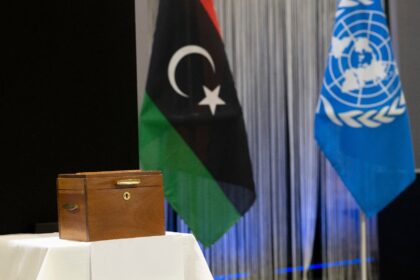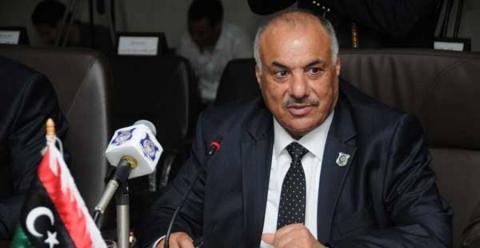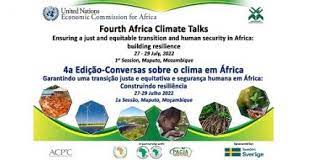 The second round of voting by the Libyan Political Dialogue Forum (LPDF) gathered in Geneva has resulted in a new unified Libyan government, with Mohammed al-Menfi chosen as presidency council head and Abdulhamid Dbeibeh as Prime Minister.
The second round of voting by the Libyan Political Dialogue Forum (LPDF) gathered in Geneva has resulted in a new unified Libyan government, with Mohammed al-Menfi chosen as presidency council head and Abdulhamid Dbeibeh as Prime Minister.
Seventy-four members of the LPDF, which includes Libyans from different political backgrounds, elected a list that includes Abdul Hamid Mohammed Dbeibah as the Prime Minister and Mohammad Younes Menfi as the head of the Presidential Council. Menfi will serve with Mossa Al-Koni, and Abdullah Hussein Al-Lafi in the council.
The election of a unified administration aims at ending a division in Libya that has lasted for more than five years, with two rival governments, and their affiliated armed groups, running different parts of the North African country.
The selection of an interim government is part of a UN peacemaking process based around holding national presidential and parliamentary elections in December.
The UN Interim Special Representative in Libya and head of the UN Support Mission in Libya (UNSMIL), Stephanie Williams, called the outcome another “historic moment” on the road to unification of the war-torn country and to national elections in December.
“On behalf of the United Nations, I am pleased to witness this historic moment”, she said.
“The importance of the decision that you have taken here today will grow with the passage of time in the collective memory of the Libyan people.”
Libya has descended into crises on multiple fronts, since the fall of former ruler Muammar Gadaffi in 2011, with the country essentially divided between a UN-recognized Government of National Accord (GNA) based in the capital Tripoli, and a rival administration, led by warlord General Khalifa Hafter, who commands the western-based self-styled Libyan National Army (LNA).
“This process, your process, has come a long way from when we first convened you virtually in October of last year”, added Ms. Williams, who has successfully steered the LPDF through a series of breakthrough agreements in recent months. “You overcame your differences, divisions and the many challenges you have faced during this difficult, but fruitful journey, in the interests of your country and of the Libyan people”, she added.
The executive and transitional prime minister will now work to form a full unified government in the days ahead. “Our bet was that you would be able to build a truly Libyan-owned solution. And that is what you have done”, said the acting UNSMIL chief.
The UN Secretary-General António Guterres, welcoming the selection of the interim leadership, called on all members of the LPDF, and international stakeholders involved in the Libyan peace process, “to respect the results of the vote.”
In a statement to correspondents in New York at UN Headquarters, Guterres welcomed the pledges made by the new executive, to form a government “reflecting political pluralism, geographical representation, and its commitment to include no less than 30 per cent of women in executive positions, as well as ensuring the participation of youth.”
The UN chief called on the executive and all concerned in the process, “to uphold the principles and timelines” of the agreed roadmap, towards democratic national elections due to take place on December 24 this year.
“The United Nations commitment to support the Libyan people in their efforts to build a peaceful and prosperous country will continue”, Mr. Guterres said.


